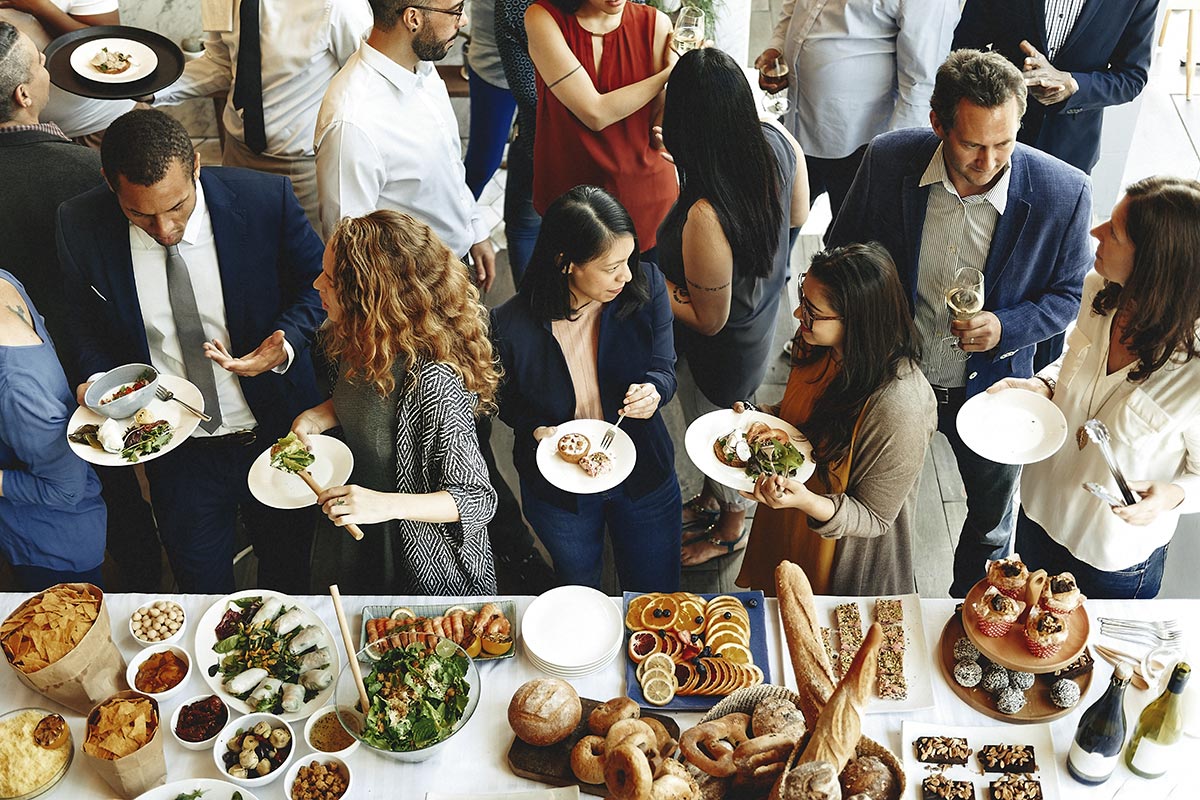Navigating Social Events in Sobriety
Sobriety is an adventure. It involves facing new challenges, doing our best to meet them and learning more about ourselves and our recoveries in the process. We don’t begin sobriety with all the answers. In fact, we usually begin with no answers! “Alcohol” was our response to everything for so long, and now that we’ve stopped drinking, we need new go-to coping skills. We need to relearn what to do, what to say and how to navigate social situations. This isn’t as overwhelming as it sounds! You don’t have to do it all at once. You can’t do it all at once, so don’t beat yourself up when you struggle or just don’t know what to do.
Recovery is a journey. It is okay to worry about making friends, keeping old ones and balancing sobriety and a social life. It is okay not to have all the answers. Just know the answer is never “alcohol.” The rest will come through time, practice and support. Worries are normal. Just don’t let them keep you from living the life you deserve — the healthy, sober life that will take shape as you live it.
Why Do We Relapse?
Social events challenge sobriety. This doesn’t mean you can’t have a social life in recovery. It means you need to be aware of the risks and be prepared to face them. Scientific American1 explains, “Male alcoholics typically relapse when they are in social-drinking situations.” Men need sober friends and coping skills for these situations. On the other hand, “Female alcoholics … are more likely to drink when feeling down.” Stress and worry about social situations can lead to negative feelings and relapse. Loneliness can lead to cravings. No matter the emotions or worries you experience in the face of social situations, you don’t have to relapse. You can practice and prepare. You can have a healthy, social life in sobriety.
Tips and Tricks for Being Social and Sober
Social events can be a big source of stress in sobriety. What do you say, what do you do, how do you avoid temptations to drink? Prepare yourself as best you can, but also know that it’s okay if you are unsure of what to do in a certain situation.
Navigating social events begins with learning more about the event. This can calm a lot of worries and help you prepare some strategies for staying sober. Will there be a bar? Does the event focus on or revolve around drinking? What non-drinking activities will be part of the event? Can you bring a sober friend? Answers to these and others questions will help you talk with peers in recovery and your treatment professionals about how to approach the situation. It will also give you time to prepare some coping tips and tricks in advance.
One tip for navigating a social event is to get ready to say “no” to alcohol. If you aren’t comfortable sharing the reason why you don’t drink, you don’t have to. You don’t owe anyone a detailed explanation. But be prepared by having some general responses ready, so you aren’t caught off guard. You are the designated driver, you have an allergy, you just don’t want to. Hold a non-alcoholic drink to stave off offers and the need to explain at all. Mostly recognize that no one is putting your drinking or not drinking under as much scrutiny as you are.
The Pat Moore Foundation2 shares, “No matter how vulnerable and exposed you feel, no one is thinking about you as much as you are thinking about yourself. Happily, you are not the center of the universe! I am most anxious when I assume that everyone is watching my actions under a microscope. Remember that most people are wrapped up with their own lives and concerns, so any reason you give them for not drinking, they will take at face value.” You aren’t the center of attention. You can make your own choices about what you do and don’t do at a party, and most people will not judge or question — if they even notice at all.
Really want to take the pressure off? Just don’t go! You can skip any and all social events you don’t feel comfortable attending. Tell people you are busy, you have to work, you can’t find a sitter — or tell them the truth: you just aren’t ready or aren’t comfortable. Good friends will understand. They want you around for a long, healthy life more than they want you at a one-time social event. Make plans to meet friends for coffee or lunch at a later, quieter time.
Opting out doesn’t mean you have to sit home, alone. That can be just as triggering. Call a sober friend from treatment or from your support group. Go to a different or sober event where drinking isn’t a focus. Take yourself out to the park, the movies or a nice dinner alone. Your life is no longer dictated by alcohol or addiction. You have so many options, both social and independent, when you are sober.
What If Everything Goes Wrong?
The beauty of recovery is that there is no true failure. There is no “wrong.” There is just the opportunity to learn and move forward. Stop playing worst-case scenarios in your head. You can experience negative feelings but still have a positive experience. According to Psychology Today,3 “Sometimes emotional sobriety is about tolerating what you are feeling. It is about staying sober no matter what you are feeling. It means that you don't have to blame yourself or your program because life can be challenging. It means that you don't necessarily need to do something to make the feeling go away.”
“Finding my voice has been one of the greatest gifts I have received from joining the recovery movement. Now, when I am confronted with the question ‘Why don’t you drink?’ I am empowered to say ‘I am a person in long-term recovery, and for me that means that I have not used alcohol or used other drugs since August 3rd of 2013. Recovery has brought stability to my life and my family, allowed me to return to school to pursue my masters degree in social work, and given me a voice as a recovery advocate which allows me to help others and strengthen my community.’” –Abby Foster, an advocate for Heroes in Recovery, shares about her story of recovery.
Be willing to worry, stress and feel bad in recovery. Why? Because you won’t always feel that way. Alcohol is a dead end, but sobriety is an open book. One bad experience teaches you how to have better ones in the future. One bad day is followed by many more good ones.
Sobriety Is the Beginning
Recovery is not the end of your social life. It is not the end of fun. Addiction is selfish and isolating. Your world revolved around alcohol, and now it can include so much more. This “more” does come with potential challenges, but trust us, you are ready to meet them! You are stronger than you know, and there are more people willing to help than you think. Recovery is the beginning. It is the beginning of fresh, new friendships and a healthy social life. It is the beginning of discovering your life and how to live it truly and fully.
By Alanna Hilbink
A writer for The Life Challenge
The Life Challenge, also known as the L+C, is a recovery initiative to support those who have, and will, face challenges. Whether your challenge is getting out of bed in the morning, reconnecting with a loved one, or making strides towards a personal goal, we are here for you. We are a positive and motivational community. Together we will break down life’s barriers and celebrate the accomplishments along the way.
_____________________________________
- Moyer, Melinda Wenner. “Male and Female Alcoholics Risk Relapse in Different Situations.” Scientific American. 1 Jul. 2013. Accessed 4 Oct. 2017.
- “Explaining Sobriety at Social Events.” Pat Moore Foundation. Accessed 4 Oct. 2017.
- Mathieu, Ingrid. “What Is Emotional Sobriety?” Psychology Today. 21 Jul. 2011. Accessed 4 Oct. 2017.
_____________________________________















